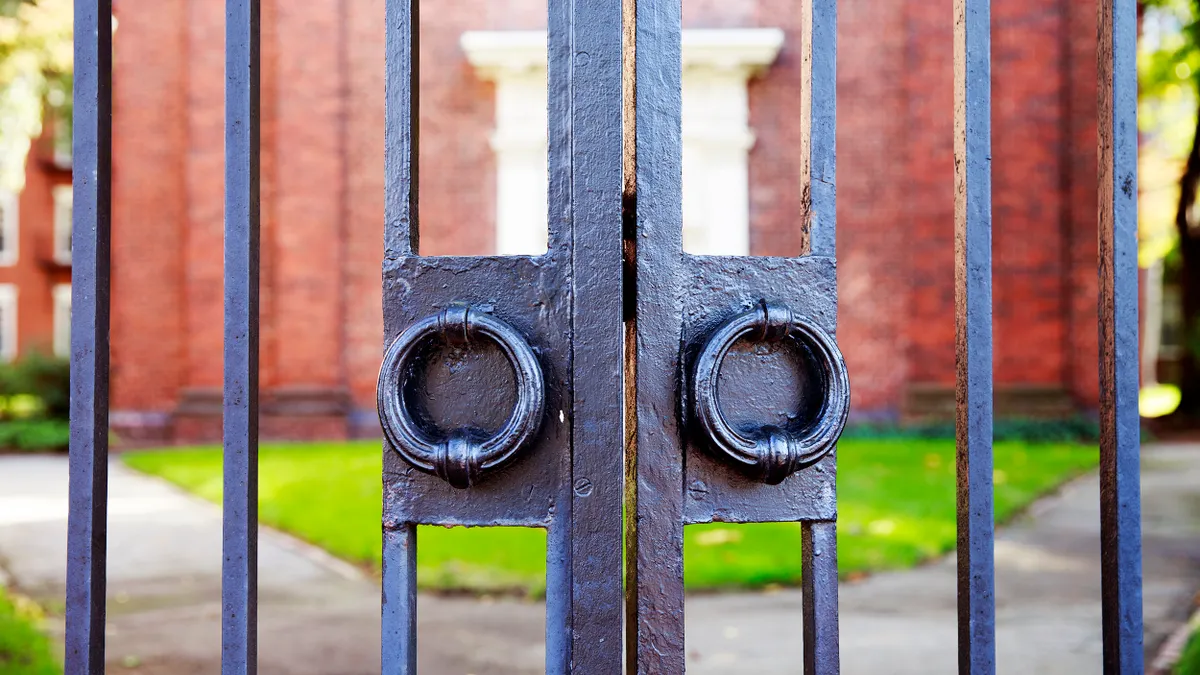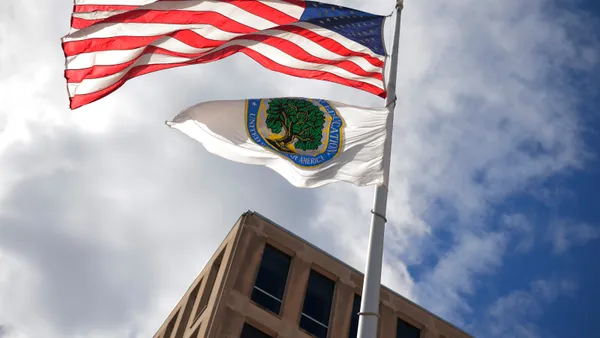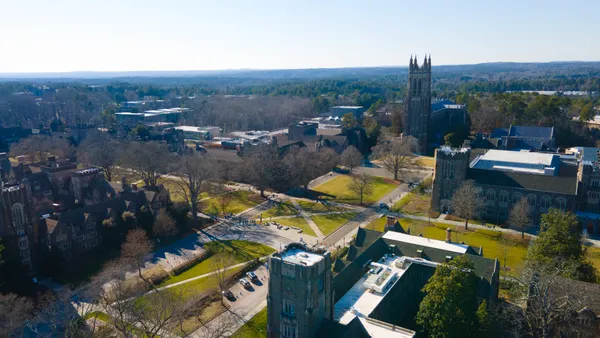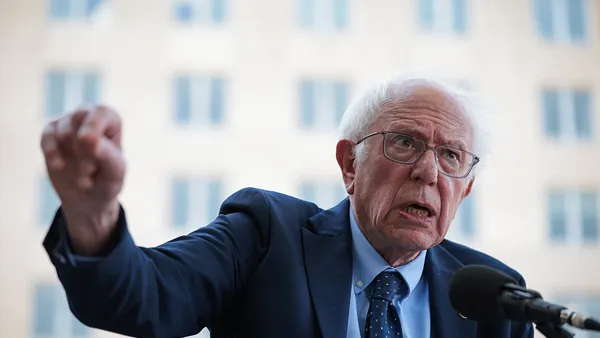Dive Brief:
- The Trump administration is proposing tighter restrictions for international student visas that some higher education experts say could deter them from studying in the U.S.
- Among the changes, which were published in the Federal Register on Friday, are a four-year limit on visa durations and more specific parameters around permissible extension requests. The rules are open to a 30-day comment period.
- International students account for around 6% of enrollment at U.S. colleges and universities.
Dive Insight:
Colleges across the country covet international students. That's in part because they tend to pay higher tuition, subsidizing the lower costs paid by their domestic peers.
Some schools also value the global perspective these students bring and have adjusted programming amid the pandemic to ensure they can continue to take classes if they can't attend in person because of travel restrictions.
Under current rules, international students can stay in the U.S. for the "duration of status" associated with their enrollment in a college or training program. The administration argues in its proposed rules that a specific timeframe would make it easier for immigration officials to monitor students, citing an increase in their numbers in recent decades.
But higher ed experts say the rule change could deter international students from coming to the U.S. And it comes as the administration has enacted other policies that make it more difficult for these students to enter the country.
For one, many students take more than four years to graduate. Fewer than half of all students who enrolled in 2012 and were seeking bachelor's degrees at four-year institutions graduated in four years, according to the latest federal data. That rate was slightly higher, at 52%, for students classified as "nonresident alien," which encompasses people who are not U.S. citizens and don't have green cards. A survey last year found that some Ph.D. programs can take seven-plus years to finish.
Experts also questioned whether the U.S. Department of Homeland Security, which is proposing the rule, can handle the likely uptick in reapplication requests. Delays in visa processing have been reported and could be another deterrent for students. Bill Hing, a professor of law and migration studies at the University of San Francisco, said the existing policy was designed partly to reduce the administrative burden for colleges and the department.
While students who reapply on time will be allowed to continue their studies while their request is pending, some graduates who wish to participate in the popular Optional Practical Training program require approval first. And some students may not be granted four years. Those from countries with high visa overstay rates, who were born in or are citizens of countries on the U.S. State Sponsors of Terrorism List, or are attending schools not registered with the E-Verify processing system could be allowed only a two-year visa.
"It's going to limit the timeframe that students and scholars have for completing their programs," said Rachel Banks, senior director of public policy and legislative strategy at NAFSA: Association of International Educators.
The uncertainty could cause foreign students to look to other countries, including Canada, Australia and the United Kingdom, that are actively welcoming them, Banks said.
"If you've decided to invest in a four-year degree and for some reason you switch your major ... or do something else that slows down your progress to degree, how certain are you ... [that DHS] is going to grant the extension for you to finish," said Sarah Spreitzer, director of government relations for the American Council on Education.
Spreitzer and Banks said their organizations plan to file comments on the rules.












